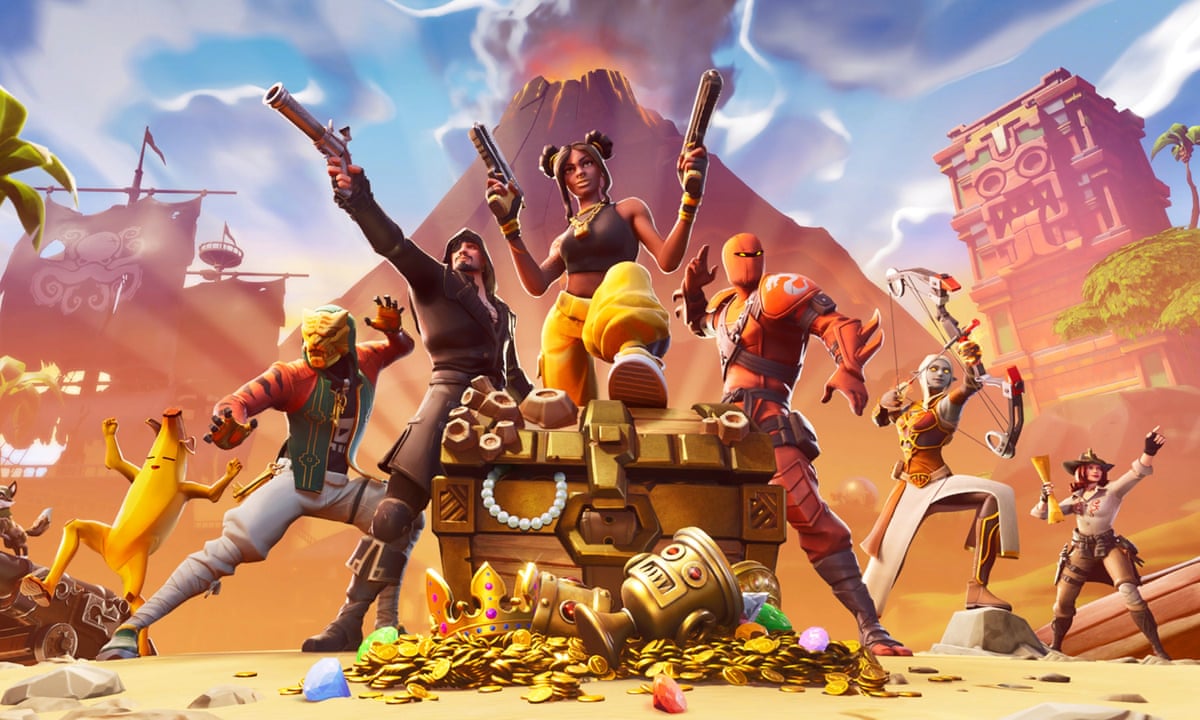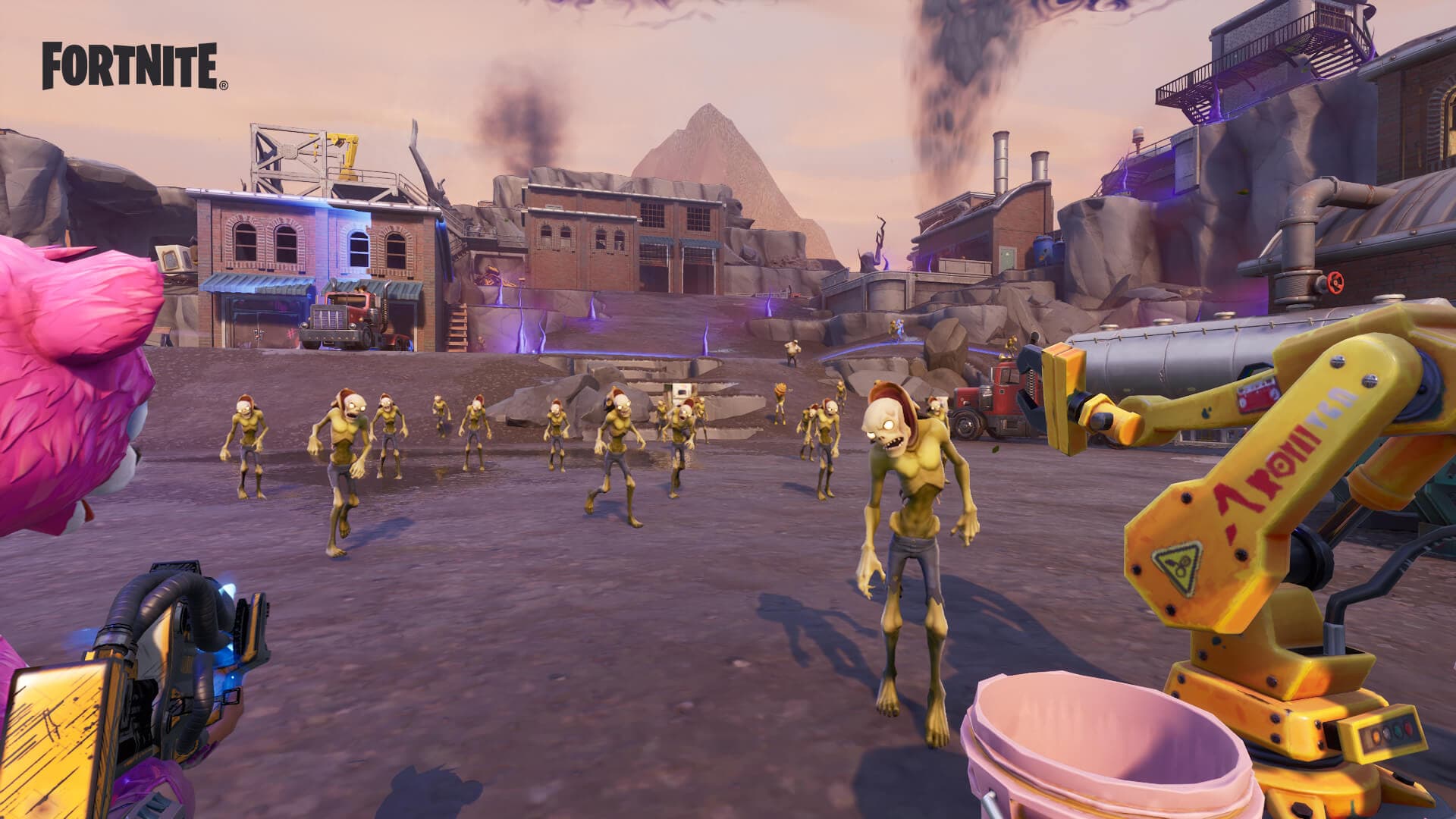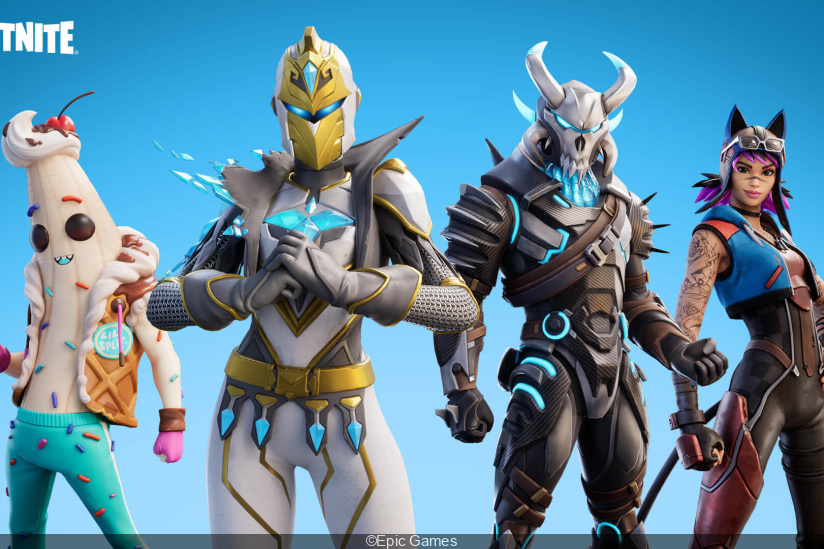The Evolution of Fortnite: From Game Changer to Cultural Phenomenon
Introduction:
Fortnite, the battle royale sensation that took the gaming world by storm, has become more than just a game; it's a cultural phenomenon. Since its release in 2017, Fortnite has continuously evolved, captivating millions of players worldwide with its unique blend of building, shooting, and social elements. In this article, we'll explore the journey of Fortnite, from its humble beginnings to its status as one of the most influential games of the 21st century.
The Birth of a Phenomenon:
Fortnite, developed by Epic Games, was initially conceived as a cooperative sandbox survival game. Released in July 2017, Fortnite's original "Save the World" mode tasked players with defending against hordes of zombie-like creatures while scavenging for resources to build structures. While moderately successful, it wasn't until the introduction of the battle royale mode that Fortnite truly skyrocketed in popularity.
The Rise of Battle Royale:
In September 2017, Epic Games introduced the free-to-play battle royale mode, taking inspiration from the success of games like PlayerUnknown's Battlegrounds (PUBG). The concept was simple yet addictive: drop onto an island with 99 other players, scavenge for weapons and resources, and be the last one standing. What set Fortnite apart was its innovative building mechanic, allowing players to construct structures on the fly, adding a layer of strategy and creativity unparalleled in the genre.
Cultural Impact:
Almost overnight, Fortnite became a cultural phenomenon, permeating mainstream media, sports, and even classrooms. Its vibrant art style, catchy dances, and frequent updates kept players engaged and coming back for more. Celebrities and athletes joined in on the craze, streaming themselves playing Fortnite and incorporating its iconic dances into their performances. The game's influence extended beyond entertainment, with educators using Fortnite as a teaching tool to engage students in subjects like mathematics and teamwork.
The Fortnite Community:
Central to Fortnite's success is its dedicated community of players. From casual gamers to professional esports athletes, Fortnite has something for everyone. The game's social features, including voice chat and cross-platform play, fostered a sense of camaraderie among players worldwide. Epic Games also embraced community feedback, regularly incorporating player suggestions and addressing issues through updates and patches.
The Evolution of Fortnite:
As Fortnite continued to evolve, so did its gameplay and content. Seasonal updates introduced new weapons, items, and map changes, keeping the experience fresh and exciting. Epic Games also experimented with limited-time game modes, collaborations with popular franchises like Marvel and Star Wars, and live in-game events that attracted millions of viewers.
Monetization and Controversies:
While Fortnite is free-to-play, its monetization model revolves around in-game purchases of cosmetic items such as skins, emotes, and battle passes. This "freemium" approach proved immensely profitable for Epic Games, generating billions in revenue. However, it also sparked controversies surrounding loot boxes, gambling, and addictive behaviors, leading to debates over the ethics of microtransactions in gaming.
The Impact on the Industry:/cdn.vox-cdn.com/uploads/chorus_image/image/72835070/fortnite_og.0.png)
Fortnite's unprecedented success has had a profound impact on the gaming industry as a whole. Its innovative gameplay mechanics and live events have influenced game development trends, with many developers striving to replicate its formula for success. Additionally, Fortnite's embrace of cross-platform play and digital distribution models has reshaped the way games are played and distributed, challenging traditional barriers and paving the way for a more connected gaming ecosystem.
The Future of Fortnite:
As Fortnite enters its next chapter, the question remains: what lies ahead for the iconic franchise? While the game continues to attract millions of players worldwide, competition in the battle royale genre is fiercer than ever, with new contenders emerging regularly. However, with its dedicated community, innovative spirit, and ever-evolving gameplay, Fortnite is poised to remain a dominant force in gaming for years to come.
Fortnite's journey from a humble survival game to a global cultural phenomenon is a testament to the power of creativity, community, and innovation in gaming. With its unique blend of gameplay, social features, and live events, Fortnite has transcended its status as just a game, becoming a shared experience that brings people together across generations and continents. As we look to the future, one thing is certain: the impact of Fortnite on gaming and popular culture will be felt for years to come.
The Future of Fortnite: Continued Innovation and Adaptation
Looking forward, Epic Games shows no signs of slowing down in their quest to keep Fortnite at the forefront of the gaming world. Here are some potential avenues for the future evolution of Fortnite:
- Continued Content Updates: Epic Games has shown a remarkable ability to keep Fortnite feeling fresh and exciting with regular content updates, seasonal changes, and collaborations. This trend is likely to continue, with new weapons, items, and map changes introduced to keep players engaged.
- Expanded Social Features: Fortnite has already established itself as a social hub, but there's room for even greater integration of social features. Enhanced in-game events, community-driven challenges, and expanded social spaces could further strengthen the sense of community within the game.
- Exploration of New Genres: While Fortnite is primarily known for its battle royale mode, Epic Games has experimented with other game modes and genres through limited-time events. We could see further exploration of these concepts, potentially leading to the introduction of entirely new game modes within the Fortnite universe.
- Innovation in Live Events: Fortnite's live events, such as concerts and movie screenings, have been wildly successful in bringing players together for shared experiences. Future events could push the boundaries even further, blurring the lines between gaming, entertainment, and real-world interactions.
 Expansion into Metaverse: With the rise of the metaverse—a virtual shared space where users can interact with each other and digital environments—Fortnite is well-positioned to become a central player. By expanding beyond traditional gameplay and embracing the metaverse concept, Fortnite could evolve into a platform for socializing, entertainment, and commerce.
Expansion into Metaverse: With the rise of the metaverse—a virtual shared space where users can interact with each other and digital environments—Fortnite is well-positioned to become a central player. By expanding beyond traditional gameplay and embracing the metaverse concept, Fortnite could evolve into a platform for socializing, entertainment, and commerce. - Embrace of Emerging Technologies: Epic Games has a history of embracing emerging technologies, such as ray tracing and virtual reality. As technology continues to advance, we could see Fortnite incorporating new features and experiences made possible by innovations in hardware and software.
- Sustainability and Responsibility: In an increasingly connected world, there's growing scrutiny on the environmental and social impact of gaming. Epic Games has an opportunity to lead by example, implementing sustainable pr
actices and promoting responsible gaming behaviors within Fortnite and the broader gaming industry.

Ultimately, the future of Fortnite is shaped by the creativity and passion of its developers and the continued support of its dedicated community. As long as Epic Games remains committed to innovation, inclusivity, and community engagement, Fortnite is poised to remain a cultural phenomenon for years to come.








































